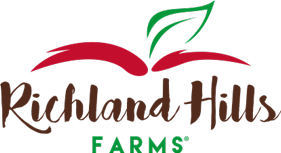SCHOOLS K-12
Farm to Table Programs in Schools
Farm to School is a program in the United States through which schools buy locally produced farm-fresh foods such as dairy, fruits and vegetables, honey, eggs, meat, and beans. The schools feature a Farm to School item on their NSLP (National School Lunch Program) menu weekly or monthly. Each district runs a unique program executed by the school nutrition department or collaborates between the education department and food service departments. These programs include an educational course that allows students to meet the farmers that produce the items featured and sample them in their raw state before the food service department incorporates them on the schools’ lunch or breakfast menu.
Many districts offer field trips to the farms to experience what a working farm is and see the product before it is processed into the food they recognize at the local market or grocery store. Districts have taken the movement further and are growing school gardens that allow students to grow, harvest, and consume their own fruits and vegetables. The Farm to School movement is also expanding into teaching about recycling. Many districts have started to work with composting companies at the Food Service Department level to help reduce the amount of compostable food that would typically go into landfills. This exercise also teaches students about the value of recycling and reducing waste.
The Farm to school movement started in 1996 to support local agriculture while improving childhood health and reducing childhood obesity. In 2004, the National Farm to School program was authorized and included 400 programs in 22 states. There is no specific definition to the Farm to Table program, but at its core, it is promoting food made from locally produced ingredients, often natural or organic. Today the National Farm to School program is in all 50 states. According to the Department of Agriculture Census, 42% of the school districts surveyed have an existing Farm to School program, with over 42,500 schools participating in the program.
Healthy Snacks for Kids at School
Richland Hills Farms supports the Farm to School project and the educational aspect of teaching students the nutritional value of eating a healthy diet. Educating students on how our agriculture system works and where food comes from is valuable for youngsters. It is essential to understand that not all children have seen a farm or have access to a community garden. At Richland Hills Farms, we hope to support the educational effort to enlighten a young child’s understanding of farm-fresh food. Ideally, this education will stay with them through life to ensure that they make healthy food and environmental choices as an adult.
Numerous studies support that the Farm to School program increases fresh fruit and vegetable consumption in the school lunch and breakfast programs. The Journal of Hunger & Environmental Nutrition published a study on the impact of the Farm to School program on students, teachers, parents, and farms. One of the critical takeaways from this study is that “75% of students receiving the farm-to-school salad bar chose a balanced meal without adult intervention.” Additional key takeaways of studying the impact of these programs are:
- Participants saw an increase of 25% to 84% more fruit and vegetable servings consumed by students in schools with a Farm to School salad bar.
- Students reduced the amounts of calories, cholesterol, and fat in their daily diets due to the Farm to School program in the cafeteria.
- Cafeterias with the non–salad bar model reported 60% of the students eating more fruit than the previous year when the farm-to-school program was not operational.
Exposing students to new and fresh foods in their natural form makes a difference, especially when supported with nutritional education and fun activities, such as field trips to farms and classroom visits by local farmers. The Farm to School program creates a learning experience that can change students’ eating habits and empower them to make healthy choices that will last into adulthood.
Grab & Go
Richland Hills Farms sliced apples are an easy way for directors to increase fruit consumption in their programs while eliminating labor and equipment needs. Our healthy, pre-sliced apples provide the USDA-recognized ¼ cup fruit equivalent. Richland Hills Farms individually wrapped bags eliminates the need to train staff on portion size. Pre-portioned packages also reduce food allergen concerns and eliminate cross-contamination. Our products maintain consistent serving sizes and quality, so directors can produce a USDA qualified reimbursable meal every time. Bulk slices are a great addition to salad bars as they reduce labor and waste by providing a ready-to-use apple slice with an extended shelf life. They do not brown when exposed to air, so they remain appealing for a longer period of time in your salad bar.
